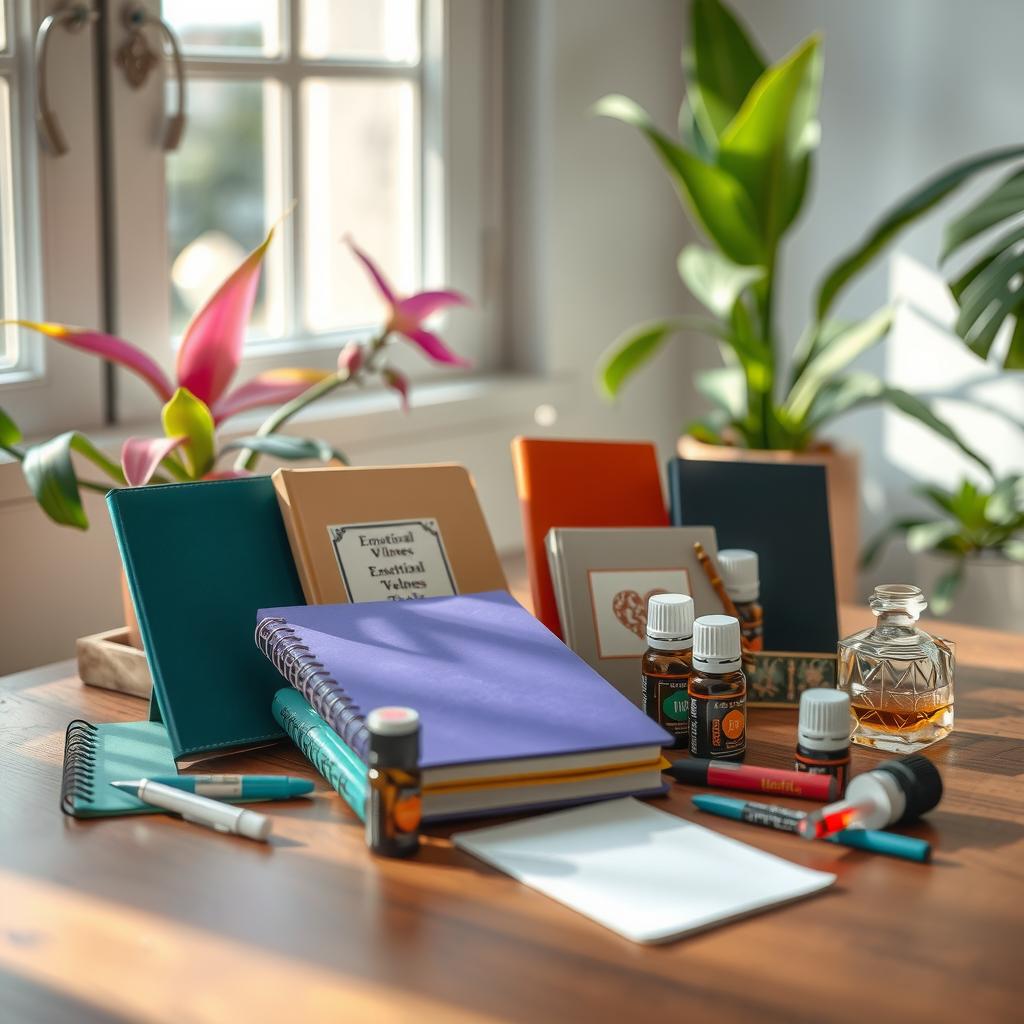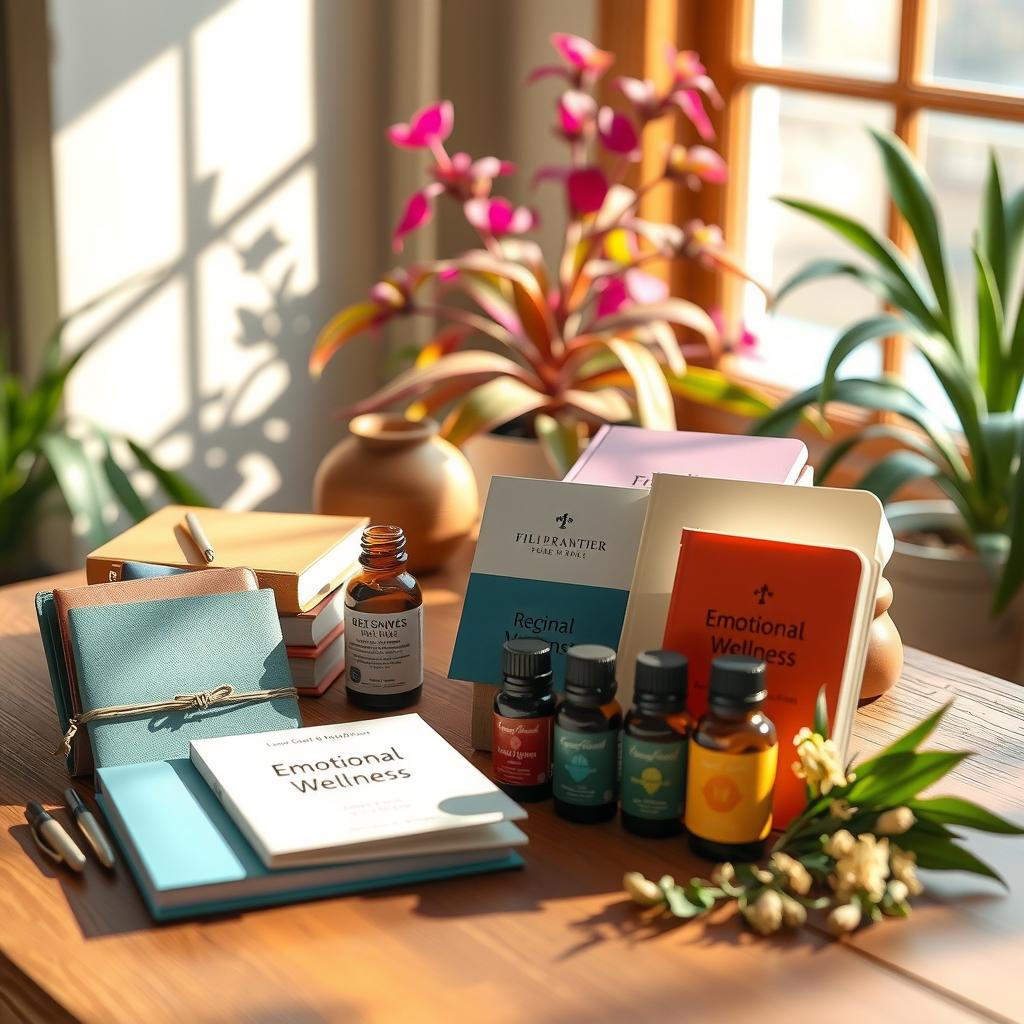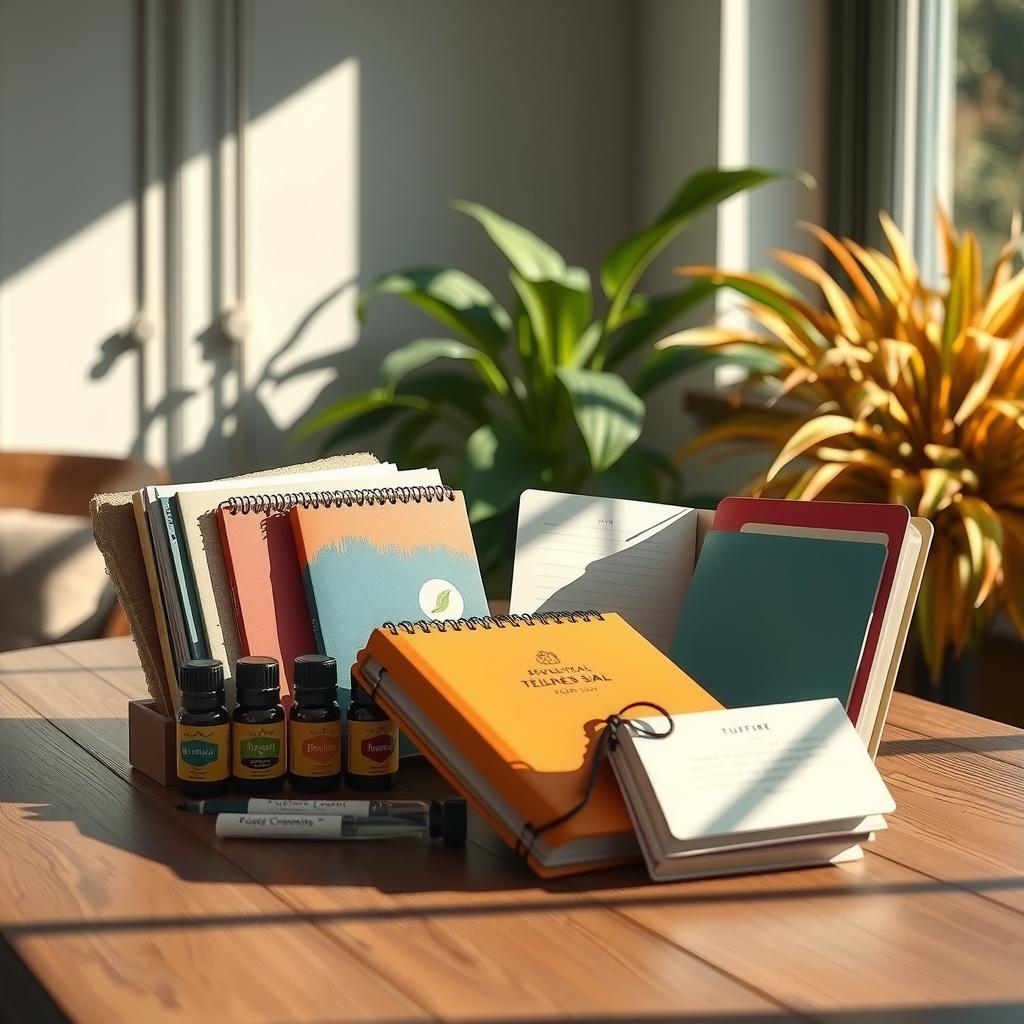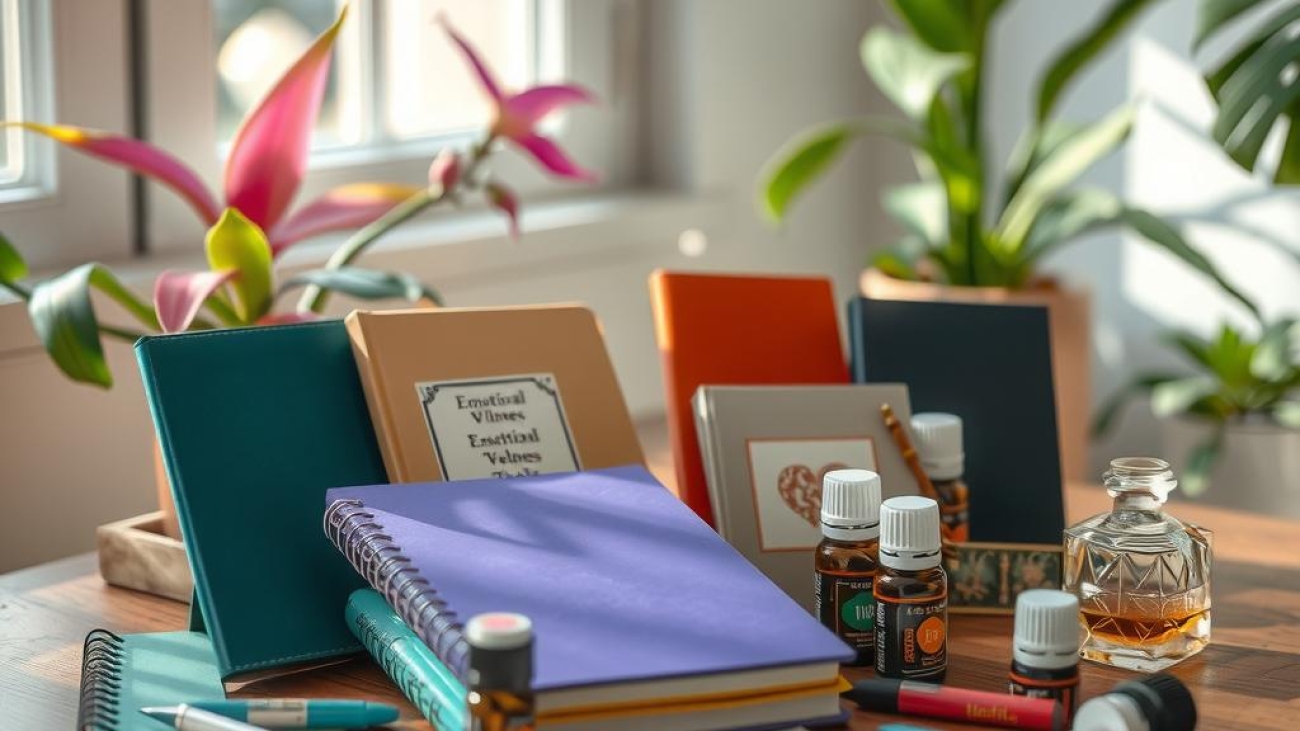In today’s fast-paced world, where stress and emotional burdens seem to be ever-increasing, how can individuals cultivate a sense of peace and resilience? This question resonates with many people facing the daily challenges of modern life. The core value of developing a personalized emotional wellness toolkit lies in its ability to empower individuals with tailored strategies that enhance mental health and promote overall well-being. By curating a set of well-being tools designed specifically for one’s unique needs, anyone can foster effective coping mechanisms and establish robust self-care strategies that provide essential emotional support.
Creating a personalized emotional wellness toolkit is not merely an act of organization; it represents an intentional approach toward prioritizing one’s mental health. Each person’s journey through life is distinct, shaped by experiences, relationships, and environments. Thus, recognizing the need for customized solutions becomes paramount in navigating emotions effectively. This article will explore practical steps towards crafting such a toolkit while addressing various aspects like identifying personal triggers, exploring different coping techniques, and integrating mindfulness practices.
As readers delve into this exploration of building their own personalized toolkit, they will discover how simple but powerful strategies can significantly improve their resilience against stressors. From journaling prompts that encourage reflection to physical activities that elevate mood—these components are instrumental in creating a holistic framework for emotional wellness. Ultimately, understanding how to assemble these elements creates not just temporary relief but fosters long-term stability in one’s emotional landscape.
With clarity on both the necessity and benefits of establishing an individualized approach to managing emotions effectively laid out before them, readers are invited to embark on this transformative journey. They will uncover actionable insights aimed at enhancing their capacity for self-care through thoughtful curation—enabling them to face life’s unpredictability with confidence and grace.

Key Points:
-
Identifying Emotional Support Mechanisms: Understanding oneself is fundamental in the journey toward emotional wellness. Individuals are encouraged to reflect on their unique needs and preferences, which can lead to identifying effective emotional support mechanisms. By utilizing strategies such as Creating a personalized emotional wellness toolkit, individuals can include resources that resonate with them personally, whether it’s through community connection or self-reflection practices.
-
Integrating Coping Mechanisms for Stress Management: The use of coping mechanisms is vital for managing daily stressors effectively. Techniques like mindfulness exercises or journaling not only provide immediate relief but also foster long-term resilience. Incorporating these practices into the routine can enhance one’s ability to navigate challenging emotions, making the process of Creating a personalized emotional wellness toolkit not just beneficial but essential for maintaining mental health.
-
Customizing Self-Care Strategies: Personalization plays an important role in enhancing overall well-being tools. Individuals should explore various self-care strategies that appeal to them—be it physical activities that invigorate or aromatherapy practices that soothe. This experimentation allows users to curate their experiences meaningfully within the framework of Creating a personalized emotional wellness toolkit, ultimately leading to improved balance and harmony in life while nurturing their mental health more effectively.

The Power of Personalization in Emotional Wellness
Crafting an Individualized Approach to Mental Well-Being
In today’s fast-paced world, emotional wellness has become an essential component of overall health. The significance of tailoring emotional support mechanisms to individual needs cannot be overstated; this personalization fosters resilience and equips individuals with effective coping strategies. Each person’s experience with mental health is unique, influenced by various factors such as personal history, environment, and personality traits. Consequently, a one-size-fits-all approach fails to address the nuances of individual emotional landscapes. By creating a personalized emotional wellness toolkit—incorporating self-care strategies that resonate deeply with one’s values and preferences—individuals can enhance their mental well-being significantly. For instance, while some may find solace in mindfulness practices or yoga sessions, others might prefer engaging in creative outlets like painting or writing as means of processing emotions.
Building Resilience Through Custom Support Systems
Personalizing emotional support systems not only addresses immediate challenges but also builds long-term resilience against future stresses. When individuals utilize well-being tools tailored specifically for them—for example, journaling prompts designed around personal triggers or curated playlists that evoke positive memories—they create pathways for deeper self-understanding and growth. Furthermore, incorporating aspects such as regular check-ins with trusted friends or professionals into one’s routine allows for dynamic adjustment based on evolving needs. Such flexibility ensures that the chosen coping mechanisms remain relevant over time and contribute positively to one’s overall emotional landscape.
Emphasizing Self-Care Strategies That Work
The importance of identifying effective self-care strategies cannot be overlooked when developing a personalized toolkit for emotional wellness. This involves recognizing what activities ignite joy or relaxation within oneself—be it gardening, cooking favorite meals, or taking leisurely walks in nature—and making these practices integral parts of daily routines. Additionally, leveraging technology can also play a pivotal role; apps focused on meditation or mood tracking offer customizable features that promote ongoing engagement with one’s mental health journey. Ultimately, fostering an understanding around what constitutes ideal emotional support allows individuals not just to cope but thrive amid life’s uncertainties—a testament to the power inherent in embracing personalization within the realm of mental well-being.

Building Your Emotional Wellness Toolkit
Unlocking the Power of Self-Care Strategies
In today’s fast-paced world, having a personalized emotional wellness toolkit is essential for maintaining mental health and well-being. Crafting such a toolkit involves integrating various self-care strategies that suit individual needs and preferences. One effective method is journaling, which serves as a powerful tool for emotional expression and self-reflection. By writing about daily experiences or feelings, individuals can gain clarity on their emotions, track mood patterns, and identify triggers that may affect their overall mental health. Journaling not only offers an outlet for stress but also encourages mindfulness—a practice where one remains present in the moment without judgment. Mindfulness exercises can include meditation or focused breathing techniques that help reduce anxiety and promote relaxation.
The Role of Mindfulness in Emotional Support
Enhancing Well-Being Through Present Moment Awareness
Mindfulness plays a crucial role in an effective personalized toolkit by fostering greater awareness of one’s thoughts and feelings while encouraging acceptance rather than avoidance. Practicing mindfulness allows individuals to observe their internal dialogue without becoming overwhelmed by it. This shift in perspective can significantly enhance one’s coping mechanisms during stressful times—transforming how they respond to challenges rather than simply reacting out of habit or impulse. Techniques such as body scans or guided imagery not only serve as immediate tools for stress relief but also cultivate resilience over time, making them invaluable components of any comprehensive emotional wellness strategy.
Incorporating Creative Outlets into Your Toolkit
Embracing Creativity as a Coping Mechanism
Another vital aspect of building an emotional wellness toolkit involves engaging with creative outlets such as art, music, or even cooking. These activities provide unique forms of expression that enable individuals to process complex emotions more easily than through words alone. For instance, painting can be cathartic; it allows people to express feelings they might struggle to articulate verbally while simultaneously providing a distraction from everyday stresses—a therapeutic escape that enhances overall emotional support systems within one’s life context. Adding these creative endeavors enriches the well-being tools available when faced with life’s inevitabilities.
Establishing Routine Practices
Harnessing Structure for Mental Health Stability
Establishing routine practices is another cornerstone in developing an effective personal emotional wellness toolkit. Regular physical activity has been shown repeatedly to improve mood through the release of endorphins—natural chemicals produced by our bodies that act like painkillers while also improving sleep quality! Whether it’s taking brisk walks outdoors or attending yoga classes regularly—the key lies in consistency paired with joy derived from movement itself! Additionally incorporating regular check-ins with oneself ensures accountability towards maintaining healthy habits over time; setting aside dedicated moments each week fosters deeper connections between mind-body-emotion triads paramount toward sustaining long-term mental health benefits.
The Importance Of Community Connection
Building Relationships As Part Of Your Toolkit
Lastly yet equally important are relationships formed within communities whether online/offline—they offer vital social support contributing directly towards enhanced mental well-being outcomes too! Connecting with others who share similar struggles creates solidarity often leading up-to strengthened bonds amongst peers paving way for collaborative growth opportunities beneficially impacting healing journeys collectively experienced together–this shared experience acts like glue binding separate journeys into unified paths towards recovery & resilience ultimately enriching every individual’s curated personalized toolbox along pathways filled both laughter tears alike encapsulating richness found amidst human existence itself!
By thoughtfully combining these elements into one’s approach towards nurturing their holistic state-of-mind continuously evolving alongside life circumstances encountered therein emerges truly transformative potential unlocking doors previously thought unattainable creating lasting positive effects resulting beautifully integrated wholeness unifying all aspects comprising existence fully embracing what means being alive today—in harmony blissfully resonating evermore vibrantly moving forward boldly ahead together hand-in-hand onward bright horizons beckoning promising new beginnings endlessly await around corners waiting exploration discovery unfurl possibilities endless defining moments shaping lives forever changed always better empowered choices made consciously intentionally crafted day-by-day henceforth onward flourishing abundantly wherever path leads unfolding magnificently expansive journey awaits each soul uniquely individual distinctively traversed profoundly touched infinitely interconnectedness reigns supreme!
Integrating Techniques for Holistic Growth
A Comprehensive Approach to Emotional Well-Being
Integrating various techniques such as aromatherapy and physical activities can significantly enhance one’s emotional landscape, creating a pathway toward holistic growth. By creating a personalized emotional wellness toolkit, individuals can effectively blend different self-care strategies that cater to their unique needs and preferences. Aromatherapy, known for its calming properties, when combined with regular physical activity like yoga or jogging, not only promotes relaxation but also boosts mood through the release of endorphins. This synergy between mind and body is essential in nurturing mental health.
Moreover, incorporating elements of mindfulness during these practices further strengthens emotional support. For instance, while engaging in aromatherapy—using essential oils like lavender or eucalyptus—individuals may practice deep breathing exercises to amplify relaxation effects. Such innovative coping mechanisms allow one to address stress more holistically by acknowledging both mental and physical aspects of well-being.
In addition to these practices, keeping a journal can serve as an invaluable tool within this personalized toolkit. Reflecting on daily experiences enhances self-awareness and aids in identifying triggers related to anxiety or depression. Over time, individuals are empowered with greater insight into their emotions which fosters better decision-making regarding their self-care routines.
The importance of community should not be overlooked; connecting with others who share similar goals for personal growth creates a supportive environment where sharing strategies becomes natural. Group activities that incorporate both movement (like dance classes) and therapeutic modalities (such as guided meditation) exemplify how diverse approaches can converge towards optimal well-being outcomes.
Ultimately, the objective lies in crafting an adaptable framework combining various methodologies tailored specifically for oneself—a journey toward achieving comprehensive emotional wellness through intentional integration of practices like aromatherapy alongside invigorating physical activities. Through consistent application of these concepts from the emotional wellness toolkit, individuals have the potential to cultivate resilience against life’s challenges while enhancing overall life satisfaction.
Build Your Unique Emotional Wellness Toolkit: Essential Strategies for Personal Growth
In today’s fast-paced world, emotional challenges such as anxiety and stress are increasingly prevalent. To effectively navigate these turbulent waters, individuals can significantly benefit from Creating a personalized emotional wellness toolkit. This essential resource is designed to meet individual needs while fostering resilience in the face of adversity. By tailoring their own toolkit, individuals not only enhance their mental health, but they also empower themselves with effective self-care strategies that promote long-term well-being.
One of the foundational elements involved in Creating a personalized emotional wellness toolkit is identifying effective coping mechanisms that resonate on a personal level. Engaging proactively with one’s emotions allows individuals to manage daily stresses more effectively. Techniques such as journaling provide an outlet for self-expression and reflection, while mindfulness exercises help cultivate present-moment awareness and reduce feelings of overwhelm. Guided visualizations serve as mental rehearsals for handling life’s challenges, reinforcing the idea that being prepared emotionally can lead to greater resilience.
Furthermore, understanding how different strategies can be combined adds another layer of customization to an individual’s experience when Creating a personalized emotional wellness toolkit. Incorporating practices like aromatherapy can enhance relaxation through sensory experiences, while engaging in physical activities—such as yoga or dancing—can elevate mood and foster joy. Each element serves a critical role in enhancing overall well-being by addressing both the mind and body holistically. As readers explore these various techniques aimed at nurturing their mental landscape, they will find invaluable tools designed specifically for them.
Ultimately, committing to this journey of personal growth through Creating a personalized emotional wellness toolkit means embracing personalization within emotional wellness itself. Individuals will discover actionable steps toward achieving balance and harmony in their lives by integrating unique elements that cater specifically to their needs. This tailored approach not only provides knowledge but also equips each person with practical resources necessary for navigating life’s complexities successfully.
FAQ:
Q: What are some key components I should include in my emotional wellness toolkit?
A: Key components may include journaling prompts, mindfulness exercises, guided visualizations, aromatherapy options like essential oils, physical activity routines you enjoy (like walking or dancing), and any other methods that resonate personally with you.
Q: How often should I engage with my emotional wellness toolkit?
A: Regular engagement is ideal; consider using your tools daily or weekly depending on your needs and schedule. The goal is to create habits around utilizing these resources so they become second nature during times of stress or anxiety.
Q: Can I modify my emotional wellness toolkit over time?
A: Yes! It’s important to regularly assess what works best for you; feel free to add new strategies or remove those that no longer resonate as your circumstances change over time.

Add a Comment